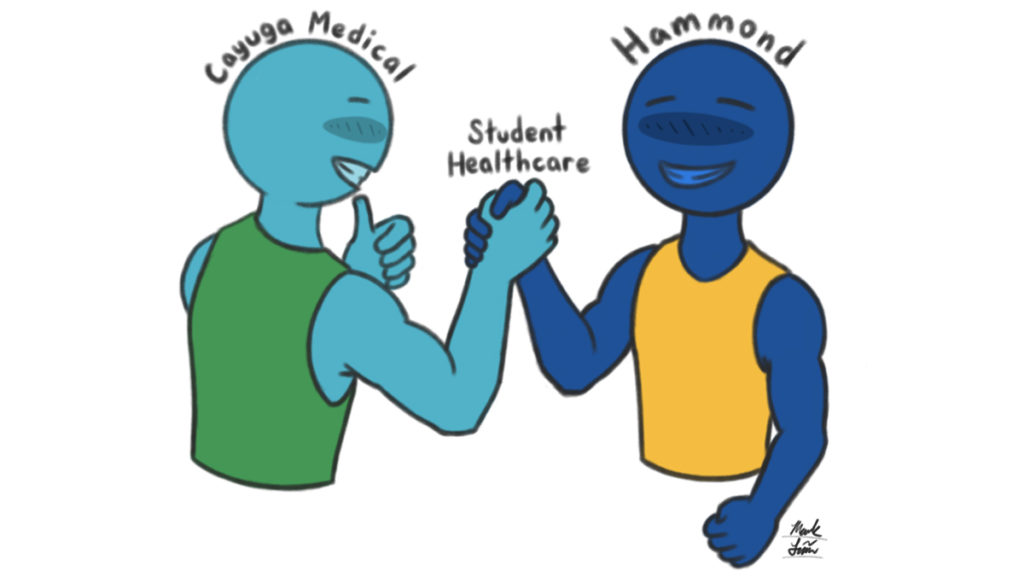The Cayuga Health System (CHS) is a large-scale, sophisticated network of health professionals with a much higher bandwidth and scope than the Hammond Health Center ever experienced. This upgrade changes the campus health service experience from a lower grade health evaluator to a legitimate clinic. Students of Ithaca College will likely begin to receive a reasonable standard of care from their campus health providers as a result.
Hammond Health Center, before it acquired services from CHS, was riddled with issues and faced countless complaints from students. Student reviews of the Hammond Health center cite long wait times, often needing a day in advance to get a spot in the health center, a length of time unacceptable for a busy college schedule. Many Google reviews also noted the rudeness and dismissive nature of the staff. Bonnie Prunty, vice president of Student Affairs and Campus Life, noted that the Hammond Health Center faced staffing issues. The lack of staff led to many students being referred elsewhere in Ithaca, according to other reviews. Taking part in the CHS solves these issues by providing in-house professional staff that will keep their doors open for as long as students need them.
The central point of contention for the shift to the CHS is the change in required student health insurance. Now, since health services are through a medical network, students will have to present their insurance during office visits. This is a point of friction for some students that may have a high-deductible plan and worry about their ability to afford medical care. According to the Kaiser Family Foundation (KFF), an American non-profit focusing on national health issues, just under half of United States adults report they have difficulty affording health care costs. KFF also notes that high healthcare costs disproportionally affect uninsured adults. Ithaca College requires health insurance for attendance, so as long as students are actively aware of the type of health insurance they have, there should be no surprises when it comes to the cost of care. There is notably no copay or insurance charge of any kind for visits considered “sensitive.” This includes any Sexually Transmitted Infection testing and behavioural health visits, with the aim of the service being to anonymize the process from any record-holding parties of the students’ insurance.
In addition to extended hours and adequate staffing measures, CHS has brought comprehensive mental health services to the campus. Previously, students were unable to receive behavioral psychoanalysis on campus, but CHS has “two behavioral health consultants (onsite) and one behavioral health/collaborative care manager (remote).” According to their frequently asked questions page, these health services expand on what the Center for Counseling and Psychological Services (CAPS) had to offer by enabling the primary care team to “prescribe and manage psychotropic medication.” The addition of active and thoughtful mental health care into the Hammond Health Center was a long overdue service for many students experiencing both situational and chronic difficulties. The health of both body and mind are vital to ensure a flourishing campus experience for our community.
This new standard of care is what Ithaca students deserve. Of course, as everything else, it comes with a cost. Ensure that you’re covered by insurance in compliance with Ithaca College policy, and that insurance considers CHS in–network. Learning to adjust and adapt is a part of the process. In the end, we should always, over all else, prioritize the wellbeing of ourselves and our fellow students.














